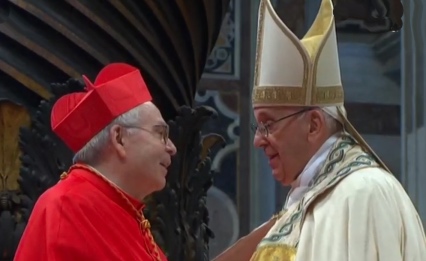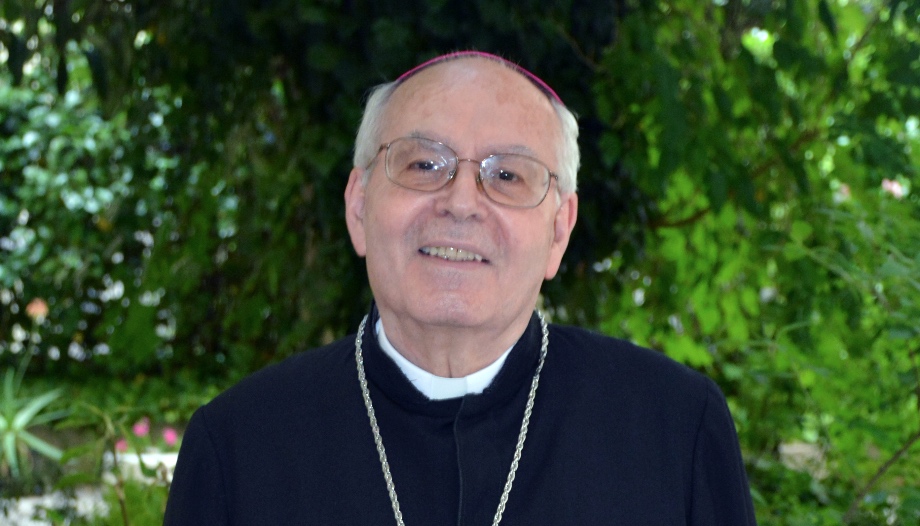









In a few days, the LI edition of the National Week of Consecrated Life. A meeting that will bring together religious men and women from very different charisms. Relationship, a broad theme, will be the axis of this edition that presents the theme as a fundamental key to express Christian identity and that of consecrated life in the present circumstances.
This Week of Consecrated Life is one of the references of the Theological Institute of Religious Lifea higher center of research and teaching, founded by the Claretian Missionaries in 1971. Cardinal Aquilino Bocos, cmf, would play a fundamental role in this foundation.
Initiator, organizer and editor of the National Weeks of Religious Life, this Claretian native of Esgueva, has granted an interview to Omnes in which he emphasizes that "secularization is not cured by fleeing but by facing the challenges with discernment and responsibility".
Fifty-one years ago, you initiated the Consecrated Life Weeks. Half a century later, what is your assessment of these Weeks?
- In October 1971, the Theological Institute of Religious Life was inaugurated in Madrid and there was a change in the direction of the magazine "Vida Religiosa". As a member of the team of the Institute and as the new director of the magazine, I presented to the Community responsible for these works the initiative to carry out a National Week of reflection for the Institutes of Religious Life. It was very well received and, upon proposing it to CONFER and to a good group of Institutes, we received the pleasant surprise of their total support. The second surprise was that, at the beginning of the Week, we were overwhelmed because many more people than expected presented themselves to us.
We have already celebrated 50 Weeks and, except for the year 2020, which was prevented by covid-19, the group of participants has remained numerous. In all of them we have been able to perceive the Easter joy, fraternity and hope. The satisfaction of the participants has served as a stimulus to prepare for each following Week.
In addition to the large number of participants, the diversity of age groups and geographical origins of the participants was striking. There were weeks in which religious men and women from more than 50 nations participated.
I believe that it was a good decision to celebrate them and disseminate their reflections in Claretian Publications, since they have served to extend the concerns and hopes expressed and to illuminate new paths of life and service to the Church.
Throughout these years the Weeks have experienced the joy of the presence of Prefects and Secretaries of the Congregation of Institutes of Consecrated Life, the Nuncio, the Presidents of the Episcopal Commission of Consecrated Life, the Presidents of CONFER, etc. and numerous pastors of our local churches. It is also a pleasure to receive expressions of gratitude from those who have developed a theme. They have felt very comfortable among the participants.
How do these Weeks encourage and promote the formation and action of the different charisms of consecrated life in society?
- I remember an anecdote from the early years. A great theologian suggested to me, from the experience of the first week, that it did not seem appropriate to congregate massively so many consecrated persons because the sensitivity of those years was to share in small groups. A few years later he participated again and asked me not to stop organizing these Weeks because they were giving much encouragement and hope to the institutes of consecrated life.


Having said this, it should be emphasized that, in organizing the Week, the most important thing is to get the title of the Week right. It is usually done after much consultation, exchange and discernment. It comes to coincide with some theme that needs to be discerned and reflected upon in the light of the Word of God and the Magisterium of the Church, and that affects the main nuclei of consecrated life in the Church and in society.
The title of the Week, taking into account the ecclesial and social challenges, illuminates nuclear aspects of consecrated life: vocations, spirituality, fraternity, mission, formation and governance. The constant reference to the prophetic dimension and commitment to the most disadvantaged is not superfluous, but connatural. This is why we try to promote a consecrated life of proximity and Samaritan spirit.
The intention, and it seems to be achieved, is that the Week has a projection in the Communities or Groups of life and apostolate. The projection of the Week abroad is also commendable. For that reason the conferences are published, which are usually the object of reflection, formation and interchange. Frequently, the professors or speakers in the Weeks have been invited to chapters, assemblies or sessions of permanent formation in different countries.
In the early years, the regional Confers echoed the National Week and key conferences were repeated in some cities.
This year's week focuses on a complex theme: relationship. The Pope strongly encourages us to live "looking at the other". How does this translate into religious life?
- The theme of the 51st Week is broad, but it is deep and committed. Almost all crises are crises of human, Christian, ecclesial or charismatic relationship. To face the relationship is to take seriously the origins, the trajectory and the fullness of life in all the alluded areas.
We move in a relational culture and a very vivid exponent is the magisterium of our Pope Francis. It is enough to read his speeches, encyclicals and exhortations to see his insistence on the other as a brother, as a neighbor, as a fellow disciple and as a member of the evangelizing community. Everything he says about the Church going forth and the Samaritan Church, everything he has insisted on fraternity, reveals a passion for man, for living together, for solidarity, for peace. It does not fail to bet on dialogue and encounter. It is evident that the theme is central to understanding and living synodality in the People of God.
Is there, even today, the danger of closing ourselves in our own community or environment more or less favorable as a response to a fear of external secularization?
- There are some groups that seek the refuge of the gated community. But this is not common. The greatest risk is dispersion and disintegration. Secularization must be faced from a serious witness in thinking and acting. And in this action I include, as it could not be otherwise, prayer, meditation on the Word of God, solidarity with the poorest and most marginalized. Secularization is not cured by fleeing but by facing with discernment and responsibility the challenges that come to us from the complex thinking that envelops us and from the liquid life that prevents us from standing on our feet.
Secularization must be faced with a serious witness in thinking and acting.
Card. Aquilino Bocos. Founder Consecrated Life Week
Also today, as Cardinal Suenens said, "This is no time for fear and loneliness. It is not the time for dispersion. It is not the time to live in solitude...It is the time for communion". We must strive to overcome secularization, globalization and the false information of digital networks with a passion for truth, mercy and fraternity.
The Church is immersed in a synodal journey especially oriented towards relationships: speaking, listening to others, also to outsiders. Do you think that this synodal spirit is effectively permeating the Church? How is Consecrated Life living this synodal challenge today?
- Synodality is "walking together". This expression refers to the first disciples on the way of Jesus and is the condition of those of us who want to follow Jesus Way, Truth and Life. It means that synodality is something more than the organization of internal Church meetings. The fact that the Pope has convoked a Synod on synodality has awakened great interest and developed a broad reflection on our way of life and our way of celebrating and evangelizing. The Church is Mystery, communion and mission. And, if we want to be coherent with our participation in it, we must be worshipers, live with intensity the fraternity and strive to joyfully proclaim the Gospel of the Kingdom.
Synodality is underway. What is holding it back? The rupture of relationships before God, before others and before nature.
Card. Aquilino Bocos, cmf. Founder Consecrated Life Week
Synodality is not a theoretical guideline, it is a path to be followed by conjugating, among others, these verbs: to look, to welcome, to live together, to thank, to love, to include and integrate, to listen, to dialogue, to forgive, to pray together, to trust, to help each other and to commit ourselves. These verbs imply personal relationships of the members of the family of God on the way.
Synodality is underway. What is holding it back? The breakdown of relationships with God, with others and with nature. They are impoverished by indifference, apathy, obviousness. Therefore, synodality implies a constant conversion to the person of Jesus and to his Church, which is his Body.
Consecrated Life is called to exercise its service of prophetic witness in the synodal journey of the Church through its consecration, fraternal life and evangelizing mission according to the charism of the Institute itself. This 51st National Week is, precisely, oriented to live with new awareness and responsibility this "journey together" with the Pastors, with the priests and with the laity.
Intra-ecclesial relations have improved a lot in these post-conciliar years, but we have to qualify them from docility to the Spirit and facing the needs of those who most need our proximity and Samaritan service.












